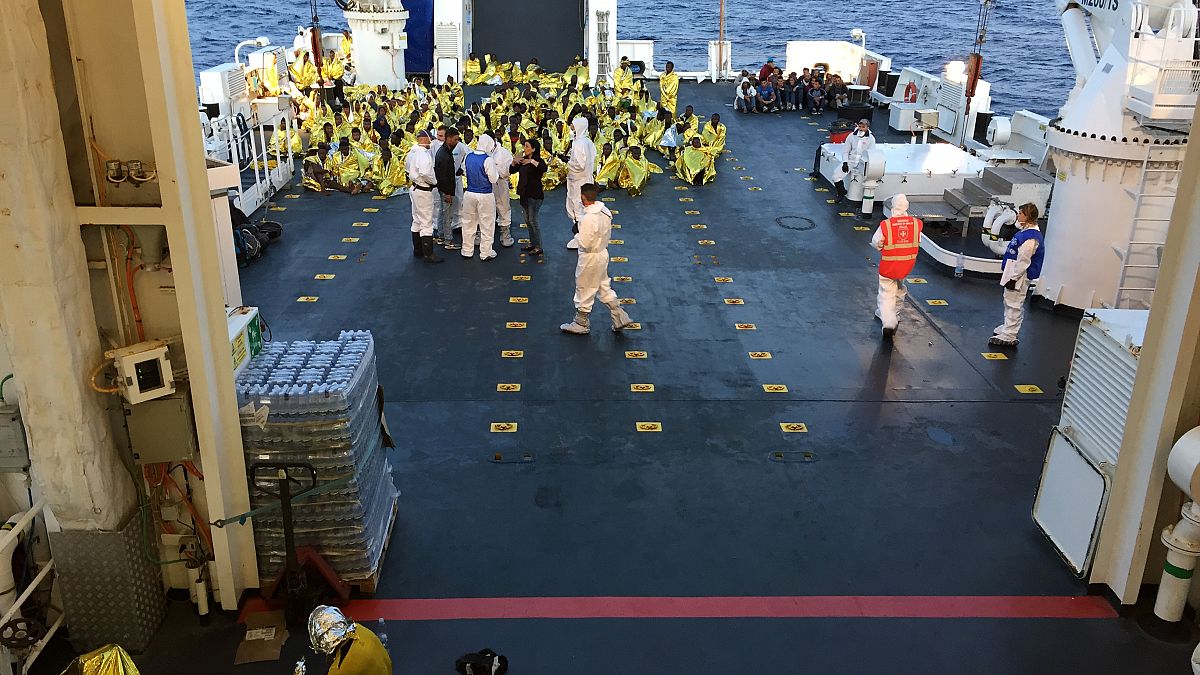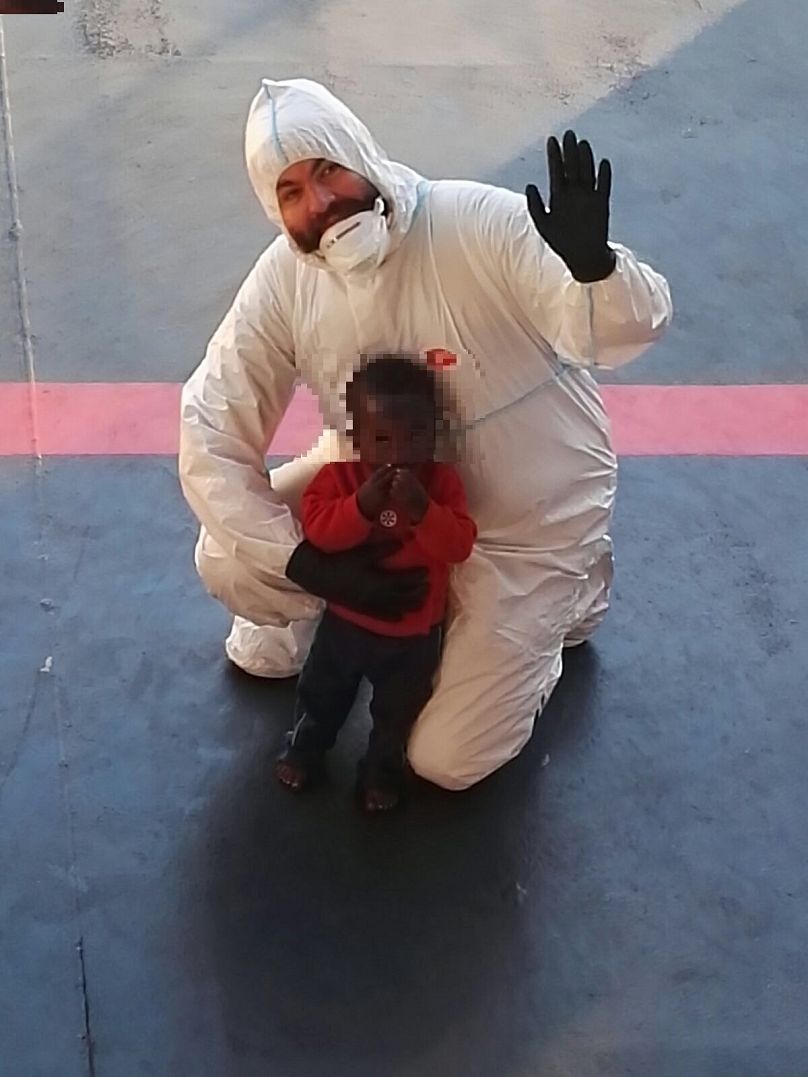A documentary producer speaks to Euronews about his experience accompanying the Italian Coast Guard, NGOs and Italian Red Cross for two months as they conducted rescue operations in the Mediterranean Sea.
By Leonardo Barrile
Leonardo Barrile is the producer of the documentary series “Sea Angels” and accompanied the Italian Coast Guard, NGOs and Italian Red Cross for two months as they conducted rescue operations in the Mediterranean Sea. He spoke to Euronews about the experience.
We started working on the documentary at the end of last year. We were involved with the Italian Coast Guard, Proactiva Open Arms, Save the Children and Medecins Sans Frontieres and their rescue operations in the Mediterranean Sea. We also worked with the Italian Red Cross at the centre where the migrants arrive after their journey. We shot for two months in Sicily. Half of the production was at sea with the Italian Coast Guard and Proactiva Open Arms.
One of my strongest memories was the first rescue operation. I was on the Italian Coast Guard’s boat, “Dattilo.” We were in the middle of the Mediterranean Sea, 60 miles away from the Libyan coast. It was midnight. I remember standing at the bow of the vessel. I looked up at the sky, which was full of stars. It was an incredible sight and I thought of my family. I wondered, “Why? Why would a mother or a father take their child and make this trip, when there is a high chance of dying?”
One hour later, I witnessed the first sea rescue operation of my life. There were around 80 people on a tug boat, which had saved them from a small, crowded dinghy while working at an oil rig and called the Coast Guard. I remember one of the first people brought onto the Coast Guard’s boat was Ismael, a baby. Ismael had his first birthday a few days before being rescued. I remember he was completely naked. And I remember his mother. She was 14 years old. I remember there were small scars all over Ismael’s body. I asked his mother what had happened. She told me, in the Libyan prison, when Ismael was crying at night because he was hungry or it was impossible to sleep, the guards put their cigarettes out on Ismael’s skin to punish him. And I remember, when Ismael’s mother told me this story, it was the first time I saw fear in someone’s face. I’m not the same man after this experience.
I want people to know what’s happening in the Mediterranean Sea right now. The public must open their eyes to this situation, to understand that we need to find a way together to escape this inhumanity.
I know it’s very difficult to accommodate all migrants and refugees. But what is the alternative? What happens after the people are rescued is a very difficult question, but there’s a step before that.
And I would like to show how Italy is on the front line in these emergencies. The Italian Coast Guard, Italian Red Cross, Proactiva Open Arms, Save the Children, all these people are what saves the dignity of the European Union. The Italian Coast Guard is made up of people who work for eleven months at sea. They’re away from their families. They have incredibly tiring, demanding jobs. What Europeans can do right now in terms of showing mercy and solidarity depends on the rescue operators’ work. Their political views vary, but their mission is to save the people without other motives. I’ve met a lot of operators on the boats and at the integration centre, and they say, “I don’t care about the colour of the person’s skin, their politics, or their culture of origin. For me, it’s important to save them because human life is important.”
In Italy, we have a problem with the laws and the ideas of the new government. It’s very difficult to explain to the majority of Italians that integration could add a richness to our society. People are worried about the creation of new ghettos. They are convinced migrants get monthly handouts -- this is very difficult to accept in a country where there is a big divide between the poor and the rich. I think all of us have to work on a new deal for political integration. This is the only way to make Italian people face the problem. We have to have a shared understanding of what our new society will look like.
It’s impossible to fight against immigration. Worldwide, a lot of people are moving right now. You can’t build a wall on the border. You can’t stop the boats in the Mediterranean Sea. We must find a way, and I mean all European countries, to deal with integration with dignity and humanity.
Opinions expressed in View articles are not those of euronews.

